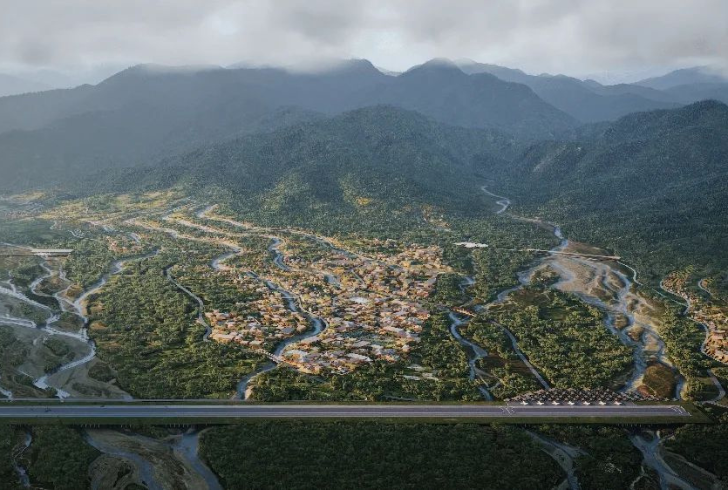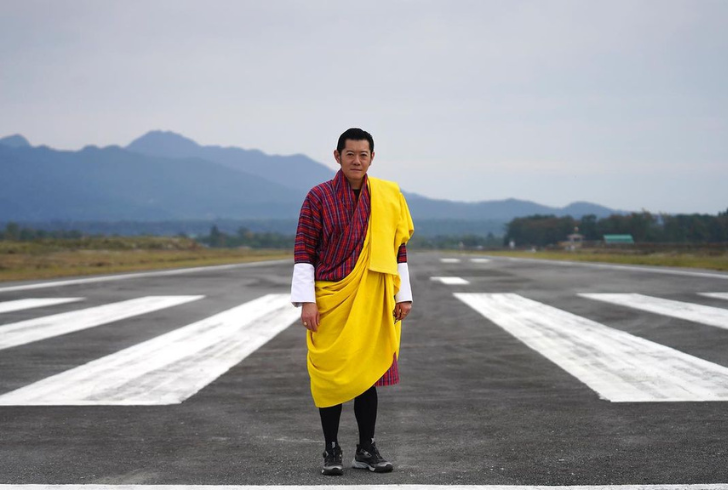Buddhist Bhutan, famous for its focus on Gross National Happiness (GNH), is planning a unique new city. The country aims to build a “mindfulness city” called Gelephu Mindfulness City (GMC). This city will focus on happiness, economic growth, and environmental care. The government hopes it will create jobs and attract investors.
Located in a special administrative zone, GMC will have its own rules. These laws will support both sustainable businesses and mindful living. Bhutan envisions this city as a bridge between South Asia and Southeast Asia.
A City for Green Living and Well-Being
Gelephu Mindfulness City will be designed to promote eco-friendly and mindful lifestyles. It will feature paths for walking and cycling to cut down on pollution. Green spaces will allow people to relax and meditate. Schools in the city will include mindfulness in their lessons. Community events and public activities will bring people together.

Instagram | jaymz_photography | Gelephu Mindfulness City promotes eco-friendly living.
Here are some of the city’s planned features:
1. Healthcare and wellness centers focused on holistic health
2. Meditation areas and parks to support mindfulness
3. Eco-tourism programs to attract visitors
4. Mindfulness-based education in schools
These features will help Gelephu Mindfulness City become a peaceful place to live. They will also make it attractive to businesses and tourists, boosting the economy.
Diverse Economic Opportunities for Bhutan
Gelephu Mindfulness City will cover over 2,500 square kilometers near the Indian border. It aims to support growth in sectors like finance, green energy, technology, healthcare, agriculture, and tourism. By encouraging businesses in these areas, Bhutan hopes to diversify its economy. Right now, the country relies mainly on hydropower and tourism.
The government plans to build essential infrastructure, such as an international airport. Private partners will help fund this work. By improving transportation, the city will make it easier for people and goods to move in and out, boosting trade.
India, Bhutan’s largest trade partner, will also play a major role in this project. Indian authorities plan to extend their road and rail systems to reach Gelephu Mindfulness City. This will connect Bhutan to global markets.
Raising Funds Through Innovative Investment Programs
To fund Gelephu Mindfulness City, Bhutan’s government launched a fixed-term deposit program. This program encourages Bhutanese people living abroad to invest in the city. The funds will help build the city’s main infrastructure, including the airport and transport links.
The government also introduced a 10-year "Nation Building Bond" to raise $100 million for the project. While there’s no strict fundraising target, this bond allows Bhutanese citizens to invest in the country’s future.
According to Ujjwal Dahal, CEO of the Gelephu Investment and Development Corporation, “This is more than a financial opportunity. It’s a chance to create a thriving, mindful, and resilient Bhutan.”
Tackling Youth Unemployment and Economic Challenges
Bhutan’s economy relies heavily on hydropower, tourism, and foreign aid. COVID-19 restrictions severely impacted tourism, slowing economic growth. In addition, youth unemployment has been a rising concern, reaching nearly 30% in 2022. This shortage of job opportunities has led many young Bhutanese to seek work abroad, especially in Australia.
The government hopes Gelephu Mindfulness City will create new jobs in different sectors. Officials estimate that, in the first phase, 150,000 people will live and work in the city. Over the next two decades, the population could grow to over a million.
A City Rooted in Bhutan’s Cultural Values

Instagram | kingjigmekhesarl Wangchuck | Gelephu Mindfulness City, inspired by Bhutan’s King, promotes well-being.
The idea for Gelephu Mindfulness City came from Bhutan’s King, Jigme Khesar Namgyal Wangchuck. He envisioned a city that balances business with Bhutan’s Buddhist values. The city is based on Bhutan’s Gross National Happiness principles, which emphasize well-being over material wealth.
Rabsel Dorji, a senior official on the project, explained, “Mindfulness is at the heart of our city’s values. It reflects who we are as a nation.” Gelephu Mindfulness City will offer a balanced lifestyle grounded in Bhutan’s spiritual heritage.
The city’s infrastructure will also protect the environment. As the world’s first carbon-negative country, Bhutan absorbs more carbon than it produces. Gelephu Mindfulness City will continue this legacy with eco-friendly architecture and sustainable practices.
Overcoming Connectivity Challenges
Some experts point out that Bhutan’s landlocked location could pose challenges. The country’s access to global markets depends on Indian infrastructure. For Gelephu Mindfulness City to succeed, it needs strong links to logistics networks, including ports.
Urban planning expert Surya Raj Acharya noted that global connectivity is crucial. For the city to become a production hub, it must have access to major shipping routes. While the focus on mindfulness and sustainability will attract interest, Bhutan must also provide a secure investment environment.
The Future of Gelephu Mindfulness City
Gelephu Mindfulness City represents Bhutan’s vision for mindful growth. By combining economic development with happiness and sustainability, this project highlights Bhutan’s unique approach to progress.
As work on the city continues, Bhutan hopes to create a model for urban living that balances ambition with spiritual values. For Buddhist Bhutan, Gelephu Mindfulness City is more than just a project. It’s a vision for a future that values both prosperity and mindfulness.







